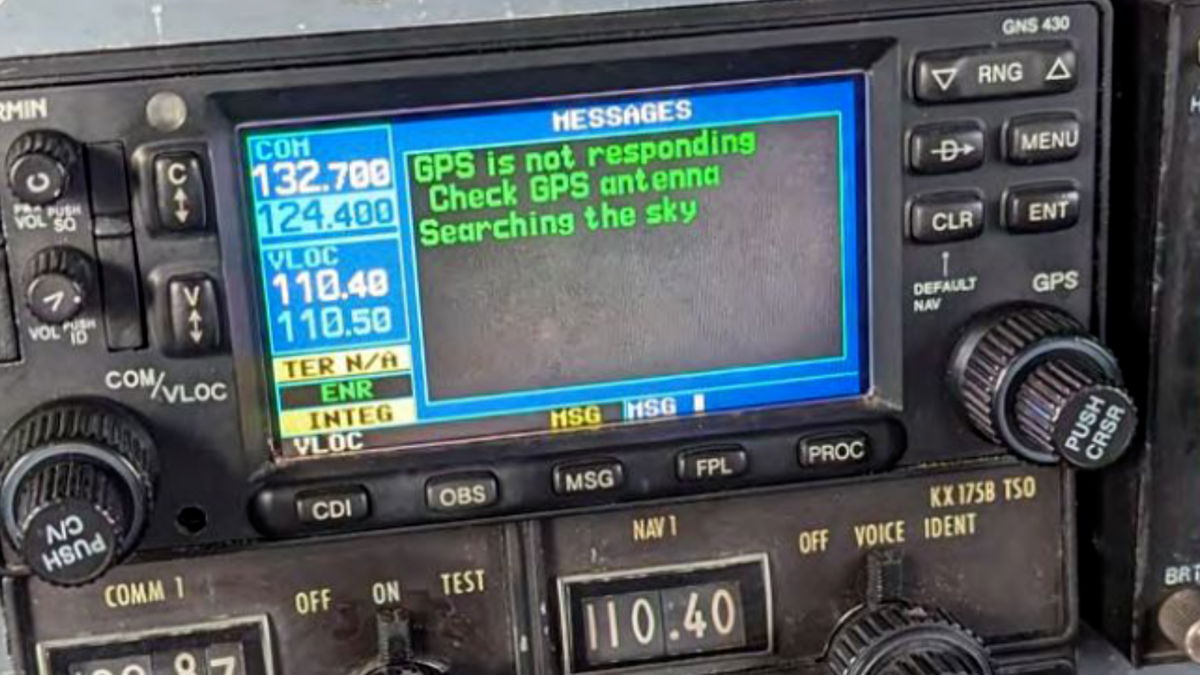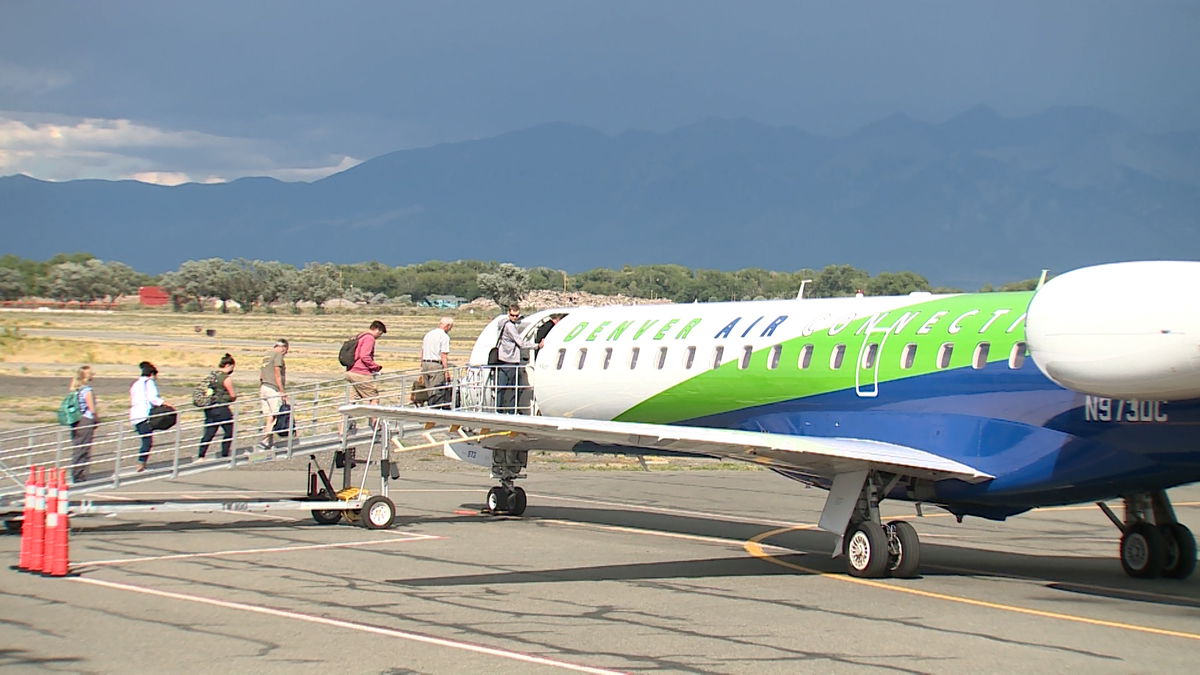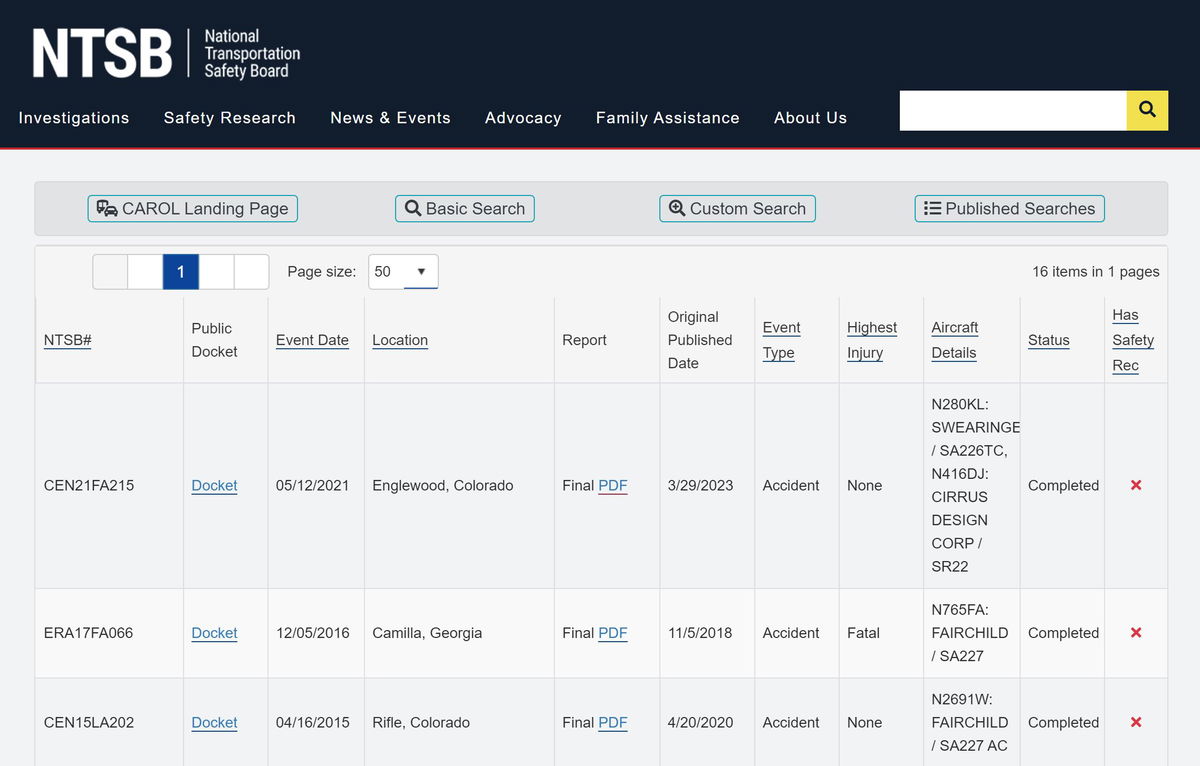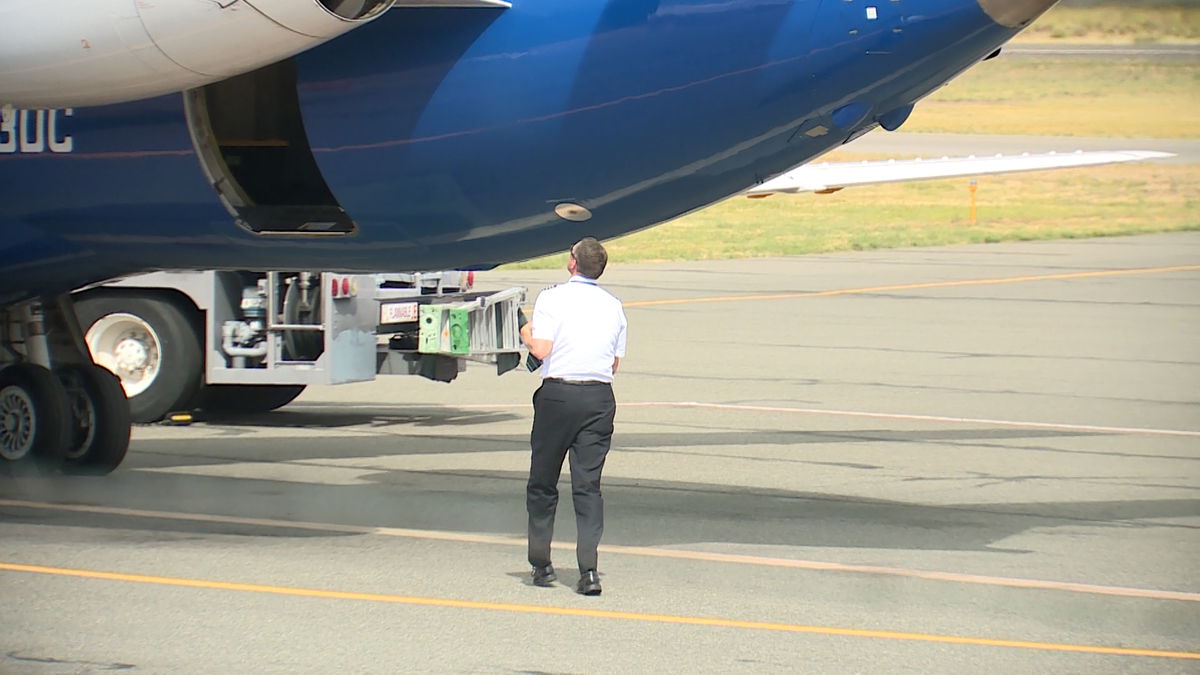Former pilots raise several safety concerns with an airline that serves southern Colorado
DENVER, Colo. (KRDO) - Five former pilots of a small airline based in Denver detail what they consider major safety concerns with aircraft that fly passengers every day in southern Colorado.
The pilots told 13 Investigates they've experienced problems with landing gear, GPS, or the autopilot system that should have kept Key Lime Airplanes on the ground, but didn't.
Twice a day in Alamosa, passengers walk down and then up the stairs of a Denver Air Connection flight, operated by Key Lime Air.
It is the only airline offering daily flights at the San Luis Valley Regional Airport, as well as small airports in Telluride and Cortez.
Key Lime Air is based at the Centennial Airport, south of Denver.

Dio Beck, James Porter, and three other pilots all spoke to 13 investigates, but Beck and Porter were the only ones comfortable using their names and faces.
They say with aviation, safety comes first.
“When we're up there, it's our lives and not anybody else's,” said Beck.
The pilots say shortly after taking a job with Key Lime Air, they began to notice mechanical problems that weren't being addressed.
In court documents obtained by 13 Investigates, the pilots claim Key Lime Air aircraft "regularly fail to pressurize, either fully or at all", exposing the crew to the risk of "disorientation, fogginess, unconsciousness, and death."
The pilots claim management "encourages flight crews to use emergency oxygen masks during routine operations."

Other issues raised in the documents include "landing without proper lighting" and one pilot being told to “reset circuit breakers on an airplane mid-flight to resolve a critical issue with the autopilot function".
“Land a plane, by myself, at night, in bad weather, and then your instruments are going out on you,” recalled Beck, “and you know you start realizing that happens more than once, and over and over again, and multiple times in the same plane to different people.”
“Most pilots aren't test pilots,” added Porter, “we don't practice, we don't train to be test pilots. We train to work with operating equipment.”
Their attorney, Andrew Swan, shared photos that show a broken strut on the landing gear, fuel leaking onto the pavement beneath an aircraft, and a GPS not responding.
The pilots claim management would often ignore the problems, put the aircraft back in service, and even retaliate against the pilots.
Beck eventually gave up trying to get things fixed and resigned.
“I quit without having another job lined up because I came to the realization that it was time to get out of there,” he says.
Along with their own safety, they were also worried about their customers.

Porter explained, “There's 50 people in every one of those passenger airplanes that's assuming those two guys in the front are supported properly, trained properly, and are allowed to make the decisions they need to make in order to move that aircraft as safely as possible across the country and not be forced or pressured or bullied into doing something that the pilots know they shouldn't be doing.”
The company declined an interview, instead releasing a statement that reads, “Key Lime Air has an impeccable safety record during its 27 years serving destinations throughout Colorado, the United States, and Canada. The company is dedicated to safety as its single highest priority, including strict pilot training and stringent operational and maintenance programs. The allegations recently raised by some pilots are an attempt to avoid their contracts with Key Lime Air. Key Lime Air looks forward to proving its case in court against these pilots.”

The NTSB's database of crashes included 16 incidents, including four where someone died.
However, the causes were most often found to be some type of human error.
A ‘lack of maintenance’ was never cited as a reason for a crash.
13 Investigates also obtained internal FAA records from 2000 to 2015 that detail 351 investigations into everything from mechanical problems to pilot behavior and 39 cases of enforcement action taken by the FAA.
In 2015, however, the FAA moved to a new system called the Compliance Program, which focuses more on counseling and training when violations are found, and only uses civil penalties or enforcement actions for reckless or intentional violations.
Since 2015, the airline has had no enforcement actions.
The FAA could not tell 13 Investigates how the number of Key Lime Air investigations compares to airlines of similar size.
Pilots do have a way to report safety issues anonymously to the FAA, but they explained that it would be very easy to trace a complaint back to them, setting themselves up for retaliation.
“I mean you identify an aircraft by tail number and date of the incident, it's not hard for management to find out who was flying the plane that day,” says Swan.

The pilots hired Swan after Key Lime Air sued them for quitting before their two-year commitment.
In the event they leave before two years of service, the agreements they signed require them to pay $25,000 to $35,000 in exchange for the training they received when hired.
Swan says by coming forward and countersuing based on the safety concerns, his clients are putting a lot on the line.
“They are risking their careers, friendships, and reputations to stand up for things that they all pretty clearly sincerely believe,” he says.
Porter and Beck don’t necessarily want Key Lime Air out of business but say they hope their counterclaim leads the airline to clean up its act.
“I don't want to see them fail,” says Beck, “I just want to see them actually do what they need to do to make our jobs an acceptable level of safety.
“I would like to somehow some way better support that good faith of the passenger, that the aircraft and crew is being supported the way it needs to be in order to move those people safely,” says Porter.
“Just because we can go and fly these airplanes by ourselves without any automation, any GPS, and these instruments that are unreliable at times, it doesn't mean we should,” adds Beck.
Three of the four lawsuits filed so far against the pilots for quitting before the length of time they agreed to work are scheduled to be heard sometime in 2024.
Do you have a tip you want 13 investigates to look into? Email us at 13investigates@krdo.com
